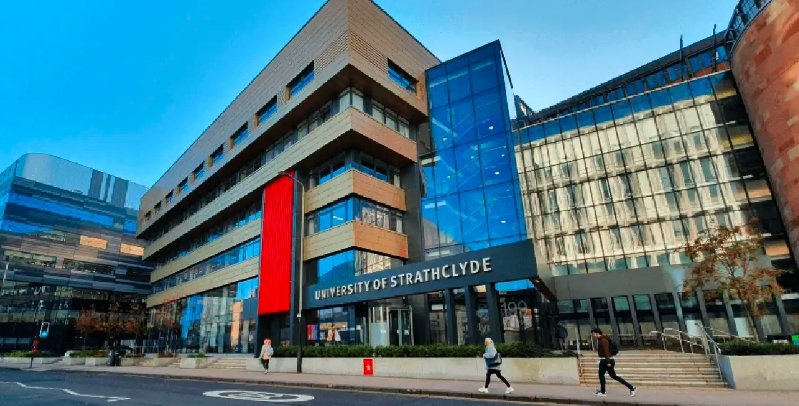Physics grads eyeing a future in Scotland just got a major boost. The University of Strathclyde in Glasgow is now offering scholarships worth £7,000 — roughly Rs 7 lakh — to international students enrolling in its full-time postgraduate Physics programs this September.
And the best part? No lengthy paperwork or applications. Eligible students are automatically considered once they pay their deposit.
Simple route, serious reward
Strathclyde has made the process refreshingly straightforward. From June 2 to July 31, 2025, students can register for their Physics MSc or MPhil programmes. Once they pay the required course deposit, the £7,000 scholarship kicks in — no essays, no interviews, no extra forms.
One-sentence paragraph: It’s first-come, first-served, so acting early really matters.
This automatic fee reduction makes a serious dent in the total cost of studying abroad, particularly for Indian students converting rupees to pounds. The average tuition fee for such master’s programmes hovers around £23,000–£27,000, which makes this award a nearly 25–30% saving.

Who’s eligible and how does it work?
To qualify, students must be:
-
International (non-UK) applicants
-
Enrolling full-time in a taught postgraduate Physics programme at Strathclyde
-
Beginning their course in September 2025
-
Paying the tuition deposit during the scholarship window (June 2–July 31)
No extra paperwork is needed. There’s no “merit list” or grade cutoff. If you’re in, you qualify.
The university clarified that the scholarship applies to all eligible Physics pathways, including specialized programmes in Quantum Technologies, Optical Technologies, and Nanoscience.
Just one sentence here: the award is applied directly to the tuition fee, not given as a cash sum.
Why this scholarship matters right now
Let’s not sugarcoat it — studying abroad isn’t cheap, and the British pound isn’t exactly light on the wallet.
For Indian students, the rupee-pound exchange rate means tuition alone can stretch personal and family budgets. Add living expenses in Glasgow — around £11,000 to £15,000 annually — and the total cost easily crosses Rs 30–35 lakh for a one-year master’s.
This scholarship brings real relief.
Here’s a quick snapshot of what the tuition savings look like:
| Programme | Typical Tuition (before) | Tuition (after scholarship) |
|---|---|---|
| MSc in Advanced Physics | £24,050 | £17,050 |
| MSc in Quantum Technologies | £25,100 | £18,100 |
| MSc in Nanoscience | £23,500 | £16,500 |
One sentence here: that’s the kind of gap that makes or breaks a decision for many students.
Strathclyde’s growing appeal for STEM talent
Strathclyde isn’t just throwing scholarships around to fill seats. The university’s Physics department has been turning heads for a while — especially in quantum, photonics, and plasma research.
It houses one of the UK’s top-rated physics research centres and has strong industry links with global tech and space firms. Think Thales, BAE Systems, and the UK Space Agency.
The university has also made Scotland a serious player in quantum technology innovation, with spinouts and start-ups springing from its labs.
This scholarship, then, is part of a broader effort to attract top STEM talent from across the globe. Indian students, particularly those from institutions like IITs, NITs, and BITS Pilani, have historically formed a large share of the intake.
What happens next?
Once students apply and receive their offer, they’ll be asked to pay a deposit to secure their place. That’s where timing comes in — the sooner the payment is made, the more likely a student is to secure the scholarship.
Unlike competitive scholarships that require months of prep and piles of documentation, this is more about speed and decision-making.
One-liner: if you’re hesitating till July, you might just miss it.
The university recommends paying the deposit as early in June as possible. While they haven’t announced an exact cap, the “first-come, first-served” warning means that the funding pot isn’t endless.


















